#National Legal Services Authority
Text
ज़मानत, जमानत बांड प्रस्तुत करने में असमर्थ विचाराधीन कैदियों के लिए SC ने कदम उठाए | SC intervenes for inmates awaiting prosecution who are unable to provide surety or bail guarantees;

न्यायमूर्ति संजय किशन कौल की अगुवाई वाली खंडपीठ का आदेश
अन्य निर्देशों के बीच, अदालत का कहना है कि कैदियों को 'अस्थायी जमानत' दी जानी चाहिए ताकि वे बाहर जा सकें और जमानत बांड और ज़मानत की व्यवस्था कर सकें; NALSA की एक रिपोर्ट में पाया गया था कि ज़मानत मिलने के बावजूद जेलों में क़रीब 5,000 विचाराधीन क़ैदी हैं।
सुप्रीम कोर्ट ने यह सुनिश्चित करने के लिए कई निर्देश जारी किए हैं कि जिन विचाराधीन कैदियों को ज़मानत मिल गई है, लेकिन ज़मानत और ज़मानत बांड भरने के लिए बहुत गरीब हैं, उन्हें सात दिनों के भीतर रिहा कर दिया जाए।
अदालत ने अंडर ट्रायल कैदियों को "अस्थायी जमानत" देने का भी सुझाव दिया है ताकि वे बाहर जा सकें और जमानत बांड और ज़मानत की व्यवस्था कर सकें।
न्यायमूर्ति संजय किशन कौल की अगुवाई वाली खंडपीठ का आदेश जनवरी में राष्ट्रीय विधिक सेवा प्राधिकरण (एनएएलएसए) की एक रिपोर्ट के मद्देनजर आया था कि अदालतों द्वारा जमानत दिए जाने के बावजूद देश में लगभग 5,000 विचाराधीन कैदी जेल में थे।
वे या तो कई मामलों में अभियुक्त थे, या जमानत शर्तों का पालन करने के लिए बहुत गरीब थे।
एमिकस क्यूरी, अधिवक्ता गौरव अग्रवाल ने कहा कि इन 5,000 कैदियों में से 2,357 को कानूनी सहायता प्रदान की गई और 1,417 को रिहा कर दिया गया, लेकिन कैदियों की व्यक्तिगत स्वतंत्रता के अधिकार का मौलिक उल्लंघन जारी है।
डिजिटल परिवर्तन
श्री अग्रवाल ने कहा कि देश भर की 1,300 जेलों में इस्तेमाल होने वाले ई-जेल सॉफ्टवेयर में बदलाव करने के लिए गृह मंत्रालय, एनएएलएसए और राष्ट्रीय सूचना विज्ञान केंद्र (एनआईसी) के साथ बैठकें की जा चुकी हैं, ताकि इन कैदियों को डिजिटल रूप से एक जेलर के रूप में पहचाना जा सके। अलग श्रेणी जिसे "जमानत-आउट-लेकिन-रिलीज़ नहीं" कहा जाता है।
NALSA रिपोर्ट और श्री अग्रवाल के सुझावों में दिखाई गई तात्कालिकता से सहमत होकर, अदालत ने यह सुनिश्चित करने के लिए सात निर्देश जारी किए हैं कि कोई भी बेल-आउट विचाराधीन कैदी गरीबी के कारण जेल में न रहे।
एक के लिए, खंडपीठ ने निर्देश दिया कि अदालतों को उसी दिन या अगले दिन जेल अधिकारियों को जमानत आदेशों की सॉफ्ट कॉपी भेजनी चाहिए।
खंडपीठ ने कहा कि जेल अधीक्षक को ई-जेल सॉफ्टवेयर में जमानत की तारीख दर्ज करनी चाहिए।
अगर किसी अंडर ट्रायल कैदी को जमानत मिलने के सात दिनों के भीतर रिहा नहीं किया जाता है तो जेल अधिकारियों को संबंधित जिला कानूनी सेवा प्राधिकरण (डीएलएसए) को सूचित करना चाहिए।
डीएलएसए जेल का दौरा करने के लिए एक स्वयंसेवक या एक वकील की प्रतिनियुक्ति करेगा और "कैदी को उसकी रिहाई के लिए हर संभव तरीके से सहायता करेगा".......
#NALSA#indian news#politics#indian politics#world news#india#supreme court#Surety#bail bonds#National Legal Services Authority#indian judiciary
0 notes
Text
What changed after ten years of NALSA Judgment? Why are transgenders still at red light - what changed after ten years of NALSA judgment
New Delhi: Ten years have passed since the NALSA Judgment. When Shrigauri Sawant filed a petition in the Supreme Court ten years ago to recognize the rights of transgender people, she did not have much hope. But the surprising thing was that the judgment of the National Legal Services Authority (NALSA) became the cornerstone of civil liberties for their community in India. This judgment…
View On WordPress
#atrocities against transgender#changed#gender identity#Judgment#light#NALSA#nalsa verdict#national legal services authority(nalsa)#red#social welfare#supreme court judgment#ten#trans community#transgender id card#transgender rights#transgenders#years
0 notes
Text
Lok Adalats and NALSA - ASPIRE IAS
0 notes
Text
Physicians are using excuses to intentionally dissuade people with disabilities from their practices, researchers say in a new study exposing just how pervasive discrimination against this population is in health care.
In focus groups, doctors described making strategic choices to turn away individuals with disabilities. They reported telling patients with disabilities that they would require specialized care and that “I am not the doctor for you.” In other cases, physicians said they simply indicate that “I am not taking new patients” or “I do not take your insurance.”
The findings come from a study published this month in the journal Health Affairs. It is based on focus groups conducted in late 2018 by researchers at the Northwestern University Feinberg School of Medicine, the University of Massachusetts and Harvard Medical School with 22 primary care and specialist doctors who were selected from a national database.
Many of the participants described accommodating people with disabilities as burdensome and some used outdated language like “mentally retarded.” Doctors frequently indicated that individuals with disabilities account for a small number of patients, making it hard to justify having accessible equipment. They also had little knowledge of their obligations under the Americans with Disabilities Act, with one suggesting that the law works “against physicians.”
The latest study builds on findings published earlier this year from a survey of 714 doctors that was done by some of the same researchers. Just 56% of physicians who participated in the survey said they welcome people with disabilities at their practices and only 41% indicated that they could provide such patients with a similar quality of care to others. Meanwhile, more than a third of doctors queried said they had little or no knowledge of their legal obligations under the ADA.
“Taken together, the focus groups and survey responses provide a substantive and deeply concerning picture of physicians’ attitudes and behaviors relating to care for people with disabilities,” the study authors note.
The findings suggest that bias continues to greatly influence health care more than 30 years after passage of the ADA, which prohibits discrimination against people with disabilities, including in medical services.
Tara Lagu, a professor of hospital medicine and medical social sciences at Northwestern University and an author of the study, described the doctors’ attitudes toward the ADA in particular as “upsetting and disappointing.”
“Our body of work suggests that physician bias and discriminatory attitudes may contribute to the health disparities that people with disabilities experience,” Lagu said. “We need to address the attitudes and behavior that perpetuate the unequal access experienced by our most vulnerable patients.”
8K notes
·
View notes
Quote
So what do we know about the faith and the worldview of Mike Johnson?
Johnson, 51, has deep ties to the Southern Baptist Convention, the nation’s largest Protestant denomination. He believes in a literal reading of the Bible, including the Book of Genesis. Johnson is a close friend of Ken Ham, the CEO and founder of Answers in Genesis, and provided legal services to that ministry in 2015.
Answers in Genesis rejects evolution and believes that the universe is 6,000 years old; to believe anything else would be to undermine the authority of the Bible. “We’re not just about creation/evolution, the age of the Earth or fossils,” Ham told Johnson and his wife, Kelly, on their podcast. “We’re really on about the authority of the Word of God and the Gospel of Jesus Christ and helping equip people to have a true Christian worldview.” Johnson is enthusiastically on board; he has suggested that school shootings are the result of having taught generations of Americans “that there’s no right or wrong, that it’s about survival of the fittest, and you evolve from the primordial slime.”
Johnson wants churches to be more politicized; he favors overturning the 1954 Johnson Amendment, which prevents churches from engaging in any political campaign activity if they want to keep their tax-exempt status. He also believes that churches are unceasingly under assault, and that Christian viewpoints “are censored and silenced.”
The Polite Zealotry of Mike Johnson
“When Fascism comes to America, it will be wrapped in the flag, carrying a cross.”
470 notes
·
View notes
Note
yandere bakugo! purge au? it’s time for the purge and its the perfect time to get his darling
I’ve been watching the Purge show with my little sister and we occasionally just text each other “The Giving is near, the Invisible awaits”. I love the purge movies so much, except the Forever Purge, I just didn’t like that one.
Title: 12 Hours
Pairings: Bakugou Katsuki x Reader
WARNINGS: Yandere themes, Bakugou’s scary lol
Summary: 12 hours when every crime is legal but with a twist- if you kidnap someone, they’re yours forever.
“You’re sure everything is locked down?” You asked, biting your lip nervously.
Your boyfriend smiled at you, “State of the art system. There’s nothing to worry about.”
You gave him a smile, but you followed it up with a sigh. You had a lot to worry about. You had gotten a note in the mail, two days before the purge, that read:
Dear (Y/n),
This is a notice that a Level 5 person(s) has been given permission to hold you indefinitely if you are captured during purge hours. We recommend staying inside and taking precautions to protect yourself.
Blessed be our New Founding Fathers,
NFFA Personnel.
Someone had requested permission to kidnap you forever, as long as they captured you on purge night. Who it was, you couldn’t even imagine.
Your house’s defense system was practically a joke. You didn’t have the money to get fancy equipment like everyone else had. That’s why your boyfriend, John, had offered to let you stay with him during purge night.
The thought had crossed your mind that John could be the crazy kidnapper, but you knew that he could have you any time he wanted to, so there wasn’t any point in kidnapping you.
John had an amazing security system. Not as good as, say, the NFFA members had, but still very good. You felt mostly safe to stay with him, but there was still an ounce of fear that wouldn’t go away.
You had looked up what “Level 5” meant and had discovered there were five levels of dangerous people classified for the purge. Level 1 was the lowest and, well, Level 5 was the most dangerous.
You had an extremely dangerous person after you. Who knew what they would do to you after kidnapping you? Maybe they would torture you all year long.
Your boyfriend turned on the TV and, a few moments later, the announcement played.
“This is not a test, this is your Emergency Broadcast System announcing the commencement of the annual purge sanctioned by the U.S. Government. Weapons of class four and lower have been authorized for use during the purge. All other weapons are restricted.
“Government officials of ranking 10 have been granted immunity and shall not be harmed. Commencing at the siren, any and all crime (including murder) will be legal for 12 continuous hours. Police, fire, and Emergency Medical services will be unavailable until tomorrow morning at 7:00 a.m. when the purge concludes.
“Blessed be our new founding fathers and America... A nation reborn. May God be with you all.”
Even through the metal shutters, you could hear the sirens start. Your breath hitched in your throat.
“We’re in for a quiet evening, don’t worry,” John said, putting a comforting arm around your shoulder, “Should we get the wine out?”
“Yes, please,” you said shakily.
Your boyfriend walked over to the cabinets and pulled out a bottle of wine and a couple cups. He poured a generous amount of liquid into both cups and handed you one. You drank all of it in one go.
John laughed and refilled your cup, “It’s only 12 hours. That’s it.”
“12 hours is a long time,” you muttered, “A lot can happen in half a day.”
Ten hours passed uneventfully, the two of you watching the only channel that wasn’t showing highlights of the purge from cameras set up around the country or talking about the history of purging.
On the eleventh hour, someone knocked on the door. You froze in your seat, breath hitching in your throat from horror. Your boyfriend stood up, “It’s okay, no one can get in. I’ll check the front door camera.”
He checked the camera and smiled, “See, they moved o-”
The power went out.
A beeping sound filled the house and then the scraping of metal as the shutters began to rise. The security system had been disabled and was reversing itself.
Even in the dim light, you could see that your boyfriend had gone pale, messing with the system frantically to try to reset it.
Finally, he turned to you and said, “Get in the closet. I’ve got a gun and I’ll deal with anyone that comes inside.”
You were crying at that point, but you managed to nod. You ran to the closet and hurriedly closed it behind you. You pulled some clothes down from the rack and tried to use them to cover yourself. There was no lock, so you were absolutely toast if anyone looked inside.
You could hear the door open loudly, as though someone had kicked it open. Your ears strained, listening for any hint that your boyfriend would be okay.
A gunshot rang through the house and you hoped it was from your boyfriend’s gun and not the intruder’s. A loud, husky laugh followed the sound, “Nice try, extra.”
You covered your mouth as the sound of an automatic gun’s famous ratatata followed. You knew John only had a pistol. No doubt your boyfriend had just died.
“Y/n”, I know you’re in here,” the voice said loudly, almost playfully, “Might as well come out now, so I don’t waste time trying to find you.”
You had less than an hour left. If you could just stall him until the 12 hours were up, maybe you’d make it out alive.
Your breath hitched again as he came into the bedroom and you closed your eyes.
“Not under the bed. What about the closet?” You could hear the smirk in the intruder’s voice.
The closet door flew open and the clothes were pulled off of you. You looked up helplessly at the wild-haired blonde with blood red eyes as he crouched in front of you. He took your wrist in a crushing grip, grinning at you with victory, and hauled you up off the floor.
“C’mon, we only have one hour to get you home. Had to deal with a lot of shit tonight. But I’m sure your boy toy’s car will help us out, won’t it, baby?”
You hadn’t made it the whole 12 hours.
Your life was in his hands.
#yandere#yandere x reader#yandere one shot#one shot#yandere my hero academia#my hero academia#yandere bakugou#bakugou katsuki
284 notes
·
View notes
Text
If, as Isaac West observes, use of the public bathroom is “one of the most, if not the most, quotidian practices of citizenship,” then this chapter argues that surveillance criminalizing public bathroom use is one element of a larger effort to secure citizenship and spatial belonging through the apprehension of physical difference. [...]
Writing about the concept of civilization in the late nineteenth-century United States, Gail Bederman describes it as an “explicitly racial concept” that “denoted a precise stage in human racial evolution”: one that had evolved past primitive or barbaric characteristics. Drawing on Darwinism, this logic rationalized white supremacy through claims that people of color simply had not developed in the same ways or at the same rate as white people, situating civilization itself as a racial characteristic and producing and solidifying distinct racial categories. Bederman notes that gender was crucial in distinguishing civilized societies from the less advanced, with the former identified in part by clear binary gender divisions. [...] Moreover, in the era of formal Jim Crow, while bathrooms marked for white people were typically separated into men’s and women’s spaces, those labeled “colored” were often unmarked by gender at all, a practice that aligns with civilizational discourse. [...]
Yet citizenship status and gender status cannot be pulled apart [...]: just as the previous two chapters of this book traced specific aspects of the Department of Homeland Security that produce and rely on a gendered citizenship, we might consider how campaigns for neighborhood safety and family values regularly invoke a kind of good citizenship that is determined in part through gender attributes. [...]
We need only consider the emphasis on birth certificates to understand the extent to which anxieties about citizenship undergird these bathroom scenes, since those documents mark not only state-approved sex designation, but also legal citizen status. In the most formal sense, birth certificates purportedly confirm citizenship and thus one’s legal belonging to the nation-state. At the same time, they can serve as evidence of citizenship in a more informal or cultural sense: if producing appropriate paperwork is one way of complying with state regulations and requests, then doing so performs good citizenship. [...]
Discourses of bathroom contagion merge fears of “real germs” with “the fear of the other”; hence, public toilets provoke more anxiety than other germ-riddled public objects like computer terminals and doorknobs. Concerns about bathroom cleanliness are as much about bodily interactions and the difficulty of regulating public space as they are about actual dirt or waste. The racial integration of some U.S. workplaces during World War II, for example, prompted tremendous white anxiety about shared bathrooms, even as Black people had long cleaned toilets and beds, prepared food, and cared for children as part of their domestic work in white households. But this “private service work reinforced racialized gender hierarchies in ways that public intimacy undermined them.”
— Toby Beauchamp (2019), Going Stealth: Transgender Politics and US Surveillance Practices, pp. 81 - 101
In his book, Beauchamp argues that anti-trans bathroom bills should be understood as a form of state surveillance that is inextricable from anti-immigration and border security practices: these bills deputize members of the public to conduct bodily assessments of other people to determine whether they meet the criteria of a 'good citizen,' giving them the power to report 'fraudsters' to the authorities if a transgender person is found inhabiting a public bathroom. The criteria by which these assessments are conducted are explicitly white supremacist ones; not only because the imagined body of the 'good citizen' is one that reflects the ideals of white, bourgeois, cissexual bodies* (as clearly demarcated, binary gender roles is a sign of advanced white civilization, and perversion of these demarcations is a perversion of white civil life), but also because one of the primary forms of evidence that you belong in a gender-segregated public space (such as a bathroom) is a birth certificate, one issued by the state - as he says: "if producing appropriate paperwork is one way of complying with state regulations and requests, then doing so performs good citizenship." (p 93). Beauchamp criticizes the framing that trans people are treated like "second class citizens," as it accepts the white racial imaginary of (white) trans people being unfairly denied the benefits of full white citizenship; we should therefore understand gender segregated spaces not as a "remix" of "old" "historic" forms of racial segregation, but as a contemporary enforcement mechanism of it. Binaohan emphasizes this in their 2014 book Decolonizing Trans/Gender 101, arguing that non-white trans people are always "in public," denied any sort of private realm; they are always visible and marked as potential threats to white citizenship. (p. 39)
This is likewise reflected in Jenny Evang's 2022 work Is Gender Ideology Western Colonialism?, where she argues that anti-trans discourse situates the presumed natural state of 'sex' as being corrupted by an overly decadent form of Western cultural advancement, which is both degenerating the Western world and 'duping' the Global South into forsaking their relationship with nature, an argument that "[frames] “non-Western societies” as “more traditional” when it comes to gender, sexuality, and the family, since “gender ideology” has not yet gone as far there as in the West. Thus their argument relies on essentializing the very same conceptualization of “cultural difference” that structures femonationalist arguments in the first place, namely, that racialized, imagined elsewheres are stuck in a more traditional gender pattern, unable to keep up with the rampant development of the West." (p. 370). Locating the origin of transgenderism in the West reproduces notions of civilizational development, where the West is secure in its supreme cultural position but has merely gone "too far," "in the wrong direction," creating the circumstances of its own downfall - a downfall which is attributed both to mass immigration (particularly immigration of Muslims) and Marxism. (p. 372)
Fears of 'gender ideology' engulfing the Western world are inextricable from concerns about the maintenance of white social hygiene, as 'gender ideology' has been called "Ebola from Brussels" (p. 371), linking the corruption of binary, hierarchical, cissexual gender to a disease afflicting the body-politic of the white nation-state. The last paragraph of the quoted passage above from Beauchamp further demonstrates the fundamental interconnectedness between race, gender, and hygiene: The racial integration of some U.S. workplaces during World War II, for example, prompted tremendous white anxiety about shared bathrooms, even as Black people had long cleaned toilets and beds, prepared food, and cared for children as part of their domestic work in white households. But this private service work reinforced racialized gender hierarchies in ways that public intimacy undermined them." (p. 101) Discourses regarding public hygiene are civilizational discourses, as a clean world is a civilized world, and a civilized world can only be a white world.
*Beauchamp explicitly brings up that one of the 'problems' of using biometric data to scan the public for potential terrorists or 'fraudulent citizens' is the white inability to tell the difference between people belonging to different racial groups, i.e., the idea that all non-white people look too much alike and therefore must undergo even more intense scrutiny (p. 95).
96 notes
·
View notes
Text
(CNN) - In new clarifying guidance announced Monday, the Biden Administration said that federal law preempts state abortion bans when emergency care is needed, and that the federal government can penalize institutions or providers that fail to provide necessary abortions to treat medical emergencies.
"Under the law, no matter where you live, women have the right to emergency care — including abortion care," HHS Secretary Xavier Becerra said in a news release Monday. "Today, in no uncertain terms, we are reinforcing that we expect providers to continue offering these services, and that federal law preempts state abortion bans when needed for emergency care."
In more than a dozen states, legal fights are underway over abortion bans and other laws that strictly limit the procedure after the US Supreme Court ended a constitutional right to an abortion on June 24.
In a letter to the nation's health care providers on Monday, Becerra said a federal statute called the Emergency Medical Treatment and Active Labor Act (EMTALA) protects providers' clinical judgement and the actions they take to provide stabilizing treatment to pregnant patients who are experiencing emergency medical conditions, regardless of restrictions in any given state.
EMTALA has been on the books since 1986. It specifically requires all patients get the appropriate medical screening, examination, stabilizing treatment and transfer to an appropriate facility if necessary.
The administration said examples of emergency medical conditions may include, but are not limited to, ectopic pregnancy -- when the fertilized egg grows outside a woman's uterus -- and complications of miscarriages. Stabilizing treatment could include abortion.
Becerra said if a state law bans abortion and does not include an exception for the life and health of the pregnant person, that state law is preempted by the federal statute.
"We heard a lot from physicians that we needed to be clearer on these points because people were still too scared to treat people," a senior adviser with HHS said in a background briefing with the media. The guidance today is "meant to try to provide that reassurance here on the clinical judgment of these physicians and hospitals."
HHS said it will do everything within its authority to ensure patients get the care they need.
The statute applies to emergency departments and other specific clinical settings. Providers also will not have to wait for a patient's condition to worsen to be protected by this statute.
If a hospital is found in violation of this statute, a hospital could lose its Medicare and Medicaid provider agreements and could face civil penalties. An individual physician could also face civil penalties if they are found in violation.
Under the statute HHS may impose a $119,942 fine per violation for hospitals with over 100 beds, $59,973 for hospitals under 100 beds. A physician could face a $119,942 fine per violation.
"We are making enforcement a priority," a senior HHS official said.
A memo from the Centers for Medicare and Medicaid Services said that hospitals should ensure that all staff who may encounter an emergency situation with a pregnant person be aware of the hospital's obligation under EMTALA.
The statute also contains a whistleblower provision that prevents retaliation by the hospital against its employee who refuses to transfer a patient with an emergency medical condition that has not been stabilized by the hospital. A link on the CMS website allows people to file an EMTALA complaint.
The enforcement of EMTALA depends on people making a complaint to the government. An investigation can only follow if a complaint is made.
"Health care must be between a patient and their doctor, not a politician," said Becerra in a news release. "We will continue to leverage all available resources at HHS to make sure women can access the life-saving care they need."
3K notes
·
View notes
Text
Paris Fire Brigade — The fire department of the city of Paris
The Paris Fire Brigade was created by Napoleon on 18 September 1811 after a devastating fire in Paris in 1810. The brigade remains the same firefighting service of Paris to this day.

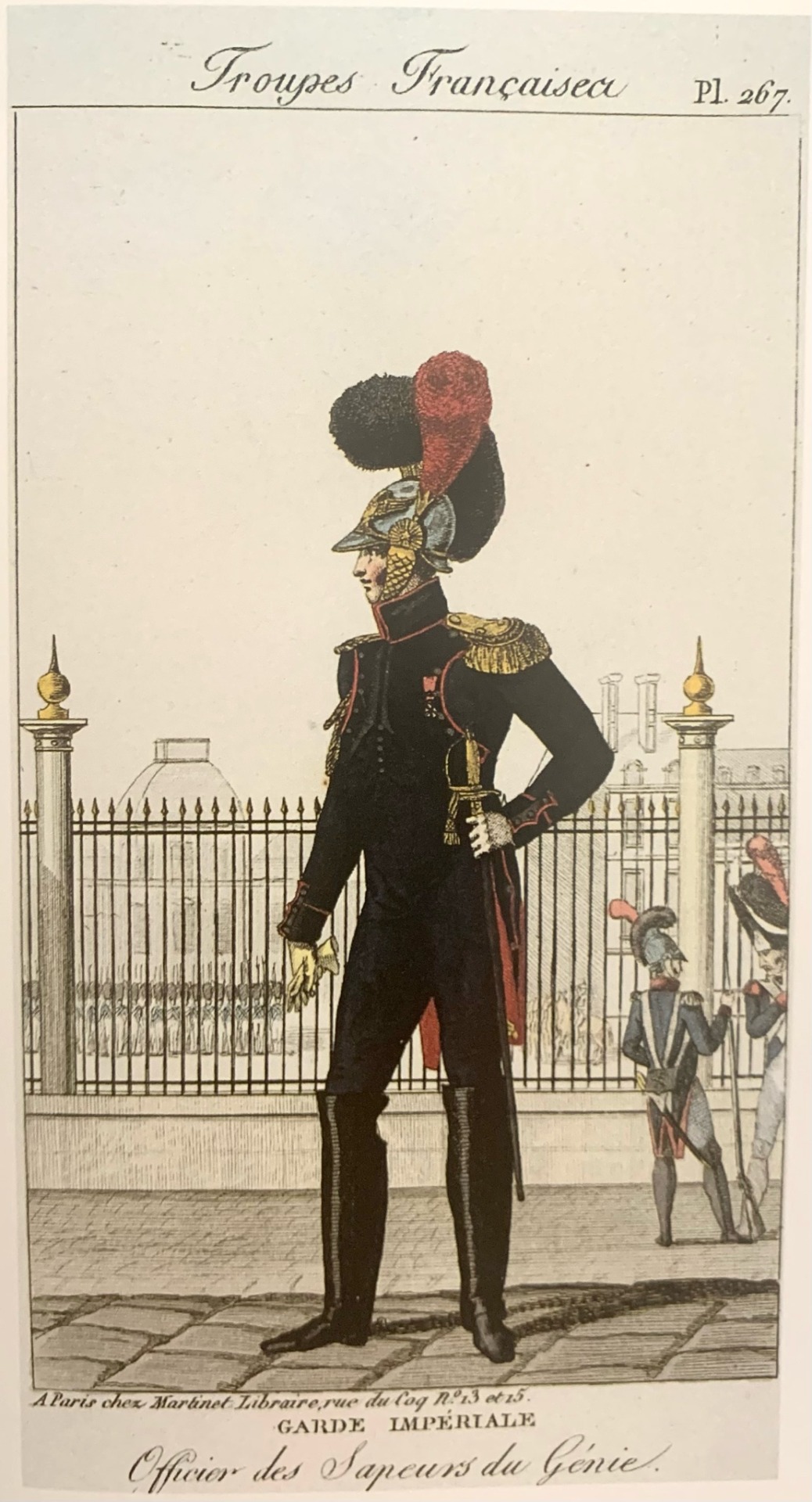
Illustrations created by Aaron Martinet between 1807 and 1814. Top: Imperial Guard, Engineer Sapper. Bottom: Imperial Guard, Officer of Engineer Sappers. These were the military positions which were transitioned into the fire department.
The deadly fire at the Austrian embassy ball in July 1810, during the festivities for his marriage to Marie Louise, reminded the Emperor of the importance of a well-functioning fire service in the capital.
Despite the courage and dedication of the gardes pompes [firefighters of the old organization], who are sometimes falsely accused of numerous shortcomings, the firefighting service revealed its weaknesses: delays, insufficient and unreliable equipment, poorly trained personnel and incompetent managers. The staff present at the embassy on the day of the tragedy were cleared of all suspicion by an investigation led by the Count of Montalivet. On the other hand, the leaders of the old organization were dismissed, and the corps des gardes pompes was abolished.
After this catastrophe, the Emperor reorganized this public service by creating the first military corps of firefighters, made up of the engineers from the Imperial Guard who were dedicated to defending the imperial chateaux against fire.
At the behest of Emperor Napoleon I, the creation of the Paris fire department [bataillon de sapeurs pompiers de Paris] by imperial decree on 18 September 1811 was an original and innovative step, marking the transition from a civil and municipal organization to a military body. The choice of such an atypical status for a public service echoes the creation, eleven years earlier, of the Paris Police Prefecture, an equally singular legal administrative body.
From its creation, this military corps was placed under the authority of the Paris Police Prefecture, who was responsible for the security of the capital. After a long process, this military status and subordination to a prefect became the logical consequence of the spirit of the decree of 12 messidor year 8.
When the battalion was formed in 1811, the Paris fire department took on a new mission: fighting fires, the importance and development of which they were still unaware of.
Four companies were then created to respond to fires. Relying on a typically military functional triptych (extensive training of men, systematic technological research and implementation of efficient operational procedures), the battalion quickly made its new environment its own, and by the end of the second half of the 19th century, had become a model for the organization of public fire-fighting services and a national, even international reference.
Several fire chiefs succeeded one another until 1814. At that date, command was entrusted to battalion commander Plazanet. He provided the battalion with an instruction manual, made it compulsory for sappers to be stationed in barracks, and introduced gymnastics to train efficient and daring rescuers.
Source: Brigade de sapeurs-pompiers de Paris — Le Bataillon
Picture source: Napoleon's Army: 1807-1814 as Depicted in the Prints of Aaron Martinet, By Guy C. Dempsey, Jr., (Section: Support Troops)
#firefighters#Napoleon#napoleon bonaparte#napoleonic era#napoleonic#first french empire#french empire#19th century#history#Paris#french revolution#Aaron martinet#france#french history#fire department#Napoleon’s reforms#napoleonic reforms#reforms#art#Napoleon's Army: 1807-1814 as Depicted in the Prints of Aaron Martinet#prints#Paris Fire Brigade#fire brigade#bataillon de sapeurs pompiers de Paris#Brigade de sapeurs-pompiers de Paris
68 notes
·
View notes
Text
I will never shut up about how Kingdom Come: Deliverance is the most tenderly written game served to the most loutish horde of jackasses. I think it is possibly one of the greatest pieces of popular fiction made about feudalism in recent history, even if it's not always the most historically accurate.
And that's because the whole damn thing is about the profound, authority-enforced inhumanity that self-propels feudal order... but this time, it's written from the perspective of, for lack of better word, "humanity undermines, and humanity wins."
Love wins, if you want to be cheeky.
This was originally meant to be a reply to @feelinungry's excellent post on the subject, but it outgrew itself and got super bloated, so I'm plopping it in its own post to not be obnoxious...
KINGDOM COME: DELIVERANCE MAJOR SPOILERS BELOW
And the reason all this about humanity and love is so important to the core of the story, to the very backbone of the narrative (even beyond the plot), is that it exists in opposition and to the impairment of the feudal system. Kingdom Come: Deliverance means to teach us, by way of deeply dramatic plots following individuals, how feudalism works and why it worked the way it did. And why and how that system fails.
The vehicle by which the game does this is by showing us, over and over, how the stratification of feudal class is eroded and sometimes outright dissolved (either in general, as with Henry and Hans, or when it matters most, as with Radzig and Henry) by plain and simple love.
Feudalism, like most class-stratified systems, relies upon 1. dehumanization of those beneath one's appointed status; 2. fealty (mock-love) to those above one's status, their title-appointer class; and 3. the maintenance of a deep separation between these artificially bestowed statuses, as enforced by church (as in word of clergy, not word of god) & state (legal rules and law). Those words and laws existed to propel the system by divide-and-maintain (of the workforce populace, placing it firmly below the next class in line, etc.) in the service of unify-and-profit (for the ruling class).
Sigismund & his invading army are wholly separated and adherent to the feudal theory, even if they have flouted codes of warfare & inheritance; they are presented to us as the main dehumanizing force of the story world, a wave of Order that indiscriminately burns opposition flat rather than an individual leading a royal coup, a cyclical destruction that paves the way for the next flavor of rule to continue the feudal system ad infinitum. They're thoroughly separated from the story even when they are burning down a village in front of our eyes and generally move as one, with Markvart occasionally stepping out of that mass of Feudalism and its antihuman nature to give it a face. They're more a force of nature than an individual as far as the narrative goes.
And we are meant to understand that in sharp contrast to the "close" story, the cast we get to know and watch as they attempt to answer this force of nature. And the second we see these characters get close enough to each other, by raw proximity, to poke a pin into the wineskin of feudal order as dictated to them by authority, it bleeds--everywhere. Not in the sense of ruination but in the sense that a tiny wedge of empathy cracks open the dam and leads, yep, to rehumanization--and love, the most human driving force there is.
And that changes everything, for everyone. Not just internally, as with a character's personal development arc (i.e., Hans learning why his duties, which he resented and viewed as an impingement on his freedom when dictated to him by authority, are incredibly important for real people who experience pain) but externally as well (as @feelinungry so elegantly points out in the original post).
Over and over, at every stage of the story, it's the rehumanization of and by these decision-makers (at a family level, at a community level, at a regional level, at a national level) that cracks the feudal cycle, even if in very small ways. Hans really brings this back home in a petri dish in late game, after the siege, when he complains to Henry about the noble's code (letting Istvan go) potentially leading to pain and disaster for the common people Istvan's machinations are likely to harm in the future. He chafes--and we chafe, and so does Radzig, and so does Divish--against feudal stratification because he has learned a general empathy through loving an individual, and that has in turn reshaped the way he sees the world.
And that's exactly why and when feudalism begins to fail, and why it thrashed itself the way it did, from the enforcement of sexual mores (though this wasn't exactly like it is in movies) and gender law to terror upon its own populations.
And it's the crucial understanding I think we begin to forget after being exposed to so much Hollywoodification of history, where the oppression always exists for cruelty's sake alone rather than in active and deliberate service to a political construct.
And I think it's why we've "lost the plot" so horribly when it comes to understanding that people in history were still people, not monolithic one-mind entities (as the feudal system demanded they be). And why we somehow forgot that such people fall in love, in all kinds of love, in a way that has never given a damn about authority. And that this in turn undermines supposedly supreme authority, even divine authority, and will always continue to do so, as long as people are people.
This is what it always comes back to. Always. From Henry's parents and their mysterious bond with Radzig informing the protagonist's journey from "the past"--to Henry & Hans falling into stupidly fierce soulmatehood with each other in the present--from Istvan & Erik's destructive fuck-the-world romantic love on the "enemy" side--to Divish's humbling, humanizing realization that he loves Stephanie in some way, he really does, despite the chasm of age/gender enforced upon them by their adherence to feudal order that doomed their romantic love to failure.
People will always love each other, even when the world orders them not to, even when faced with death and worse. People will always, given proximity and shared experiences, learn to see each other as human again. KCD reminds us of that. It's why the "slow" storyline exists and why it works.
And that is why this game is so fucking fantastic, and why the genpop fandom has utterly failed it.
#kingdom come deliverance#kcd#kcd2#henry of skalitz#hans capon#radzig kobyla#divish of talmberg#stephanie of talmberg#redmeta
77 notes
·
View notes
Text
Starbucks is suing its union, Starbucks Workers United, after objecting to the group’s social media post in support of Palestine after the Hamas attack on Israel, according to an internal company note circulated Tuesday and obtained by The Intercept.
The company had previously condemned the post but is now upping the ante, planning to take the union to court. In a message from Executive Vice President Sara Kelly, Starbucks argued that the union’s use of the name Starbucks confuses customers, and that some customers took their anger over the SWU statement out on store employees.
The union’s post read “Solidarity with Palestine!” and quote-tweeted an image of a bulldozer breaking through the fence encircling Gaza. More than 9,000 workers at 360 stores have now voted to join SWU, which is affiliated with Workers United and SEIU, according to its website, but they have been met with stiff resistance from the company on a potential contract. The company previously sent SWU a “cease and desist” order threatening legal action and now plans to follow through with that threat....
(October 17th 2023)
Starbucks and the union organizing its workers sued each other Wednesday in a standoff sparked by a social media post over the Israel-Hamas war.
Starbucks sued Workers United in federal court in Iowa Wednesday, saying a pro-Palestinian social media post from a union account early in the Israel-Hamas war angered hundreds of customers and damaged its reputation.
Starbucks is suing for trademark infringement, demanding that Workers United stop using the name “Starbucks Workers United” for the group that is organizing the coffee company’s workers. Starbucks also wants the group to stop using a circular green logo that resembles Starbucks’ logo.
Workers United responded with its own filing, asking a federal court in Pennsylvania to rule that it can continue to use Starbucks’ name and a similar logo. Workers United also said Starbucks defamed the union by implying that it supports terrorism and violence.
On Oct. 9, two days after Hamas militants rampaged across communities in southern Israel, Starbucks Workers United posted “Solidarity with Palestine!” on X, formerly known as Twitter. Workers United — a Philadelphia-based affiliate of the Service Employees International Union — said in its lawsuit that workers put up the tweet without the authorization of union leaders. The post was up for about 40 minutes before it was deleted.
But posts and retweets from local Starbucks Workers United branches supporting Palestinians and condemning Israel were still visible on X Wednesday. Seattle-based Starbucks filed its lawsuit in U.S. District Court for the Southern District of Iowa, noting that Iowa City Starbucks Workers United was among those posting pro-Palestinian messages.
In a letter sent to Workers United on Oct. 13, Starbucks demanded that the union stop using its name and similar logo. In its response, Workers United said Starbucks Workers United’s page on X clearly identifies it as a union.
“Starbucks is seeking to exploit the ongoing tragedy in the Middle East to bolster the company’s anti-union campaign,” Workers United President Lynne Fox wrote in a letter to Starbucks.
In its lawsuit, Workers United noted that unions often use the company name of the workers they represent, including the Amazon Labor Union and the National Football League Players Association....
(October 18th 2023)
160 notes
·
View notes
Text
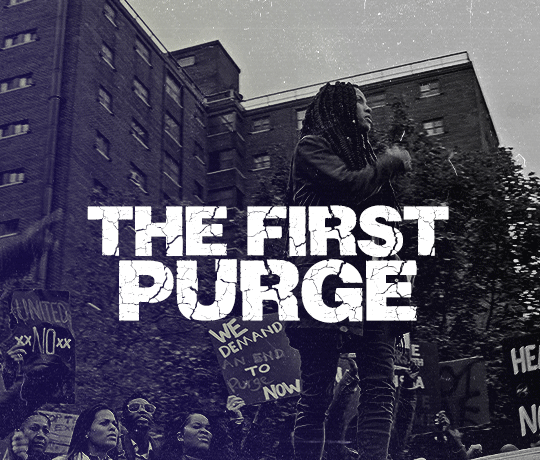

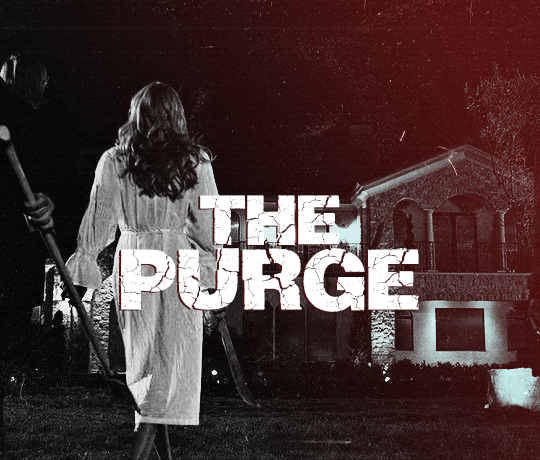


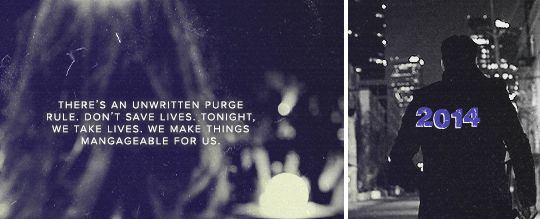
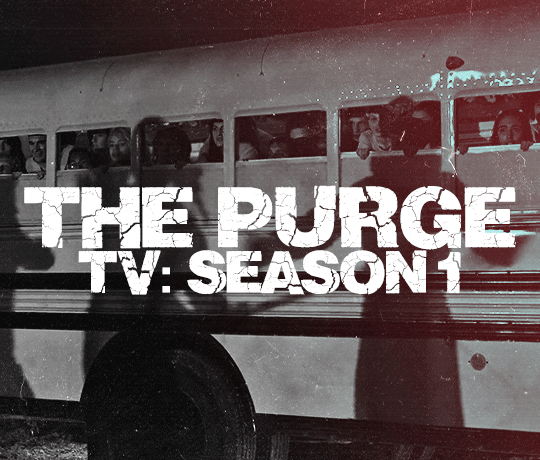
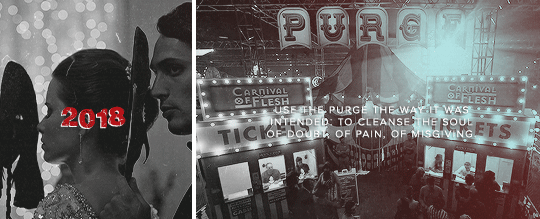

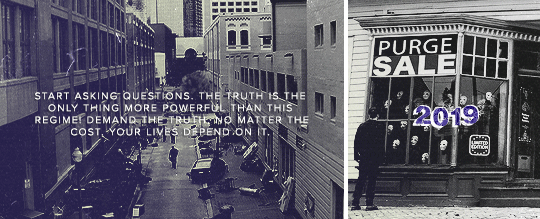
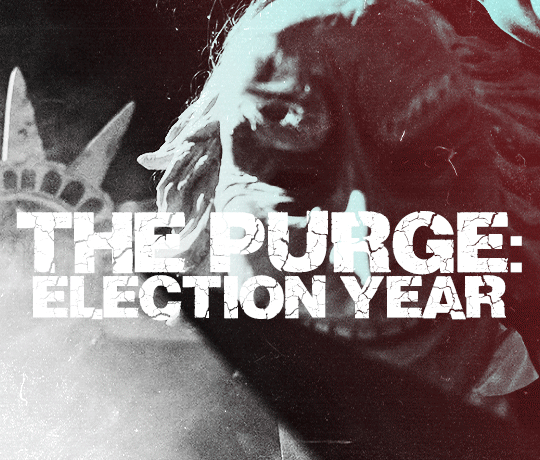

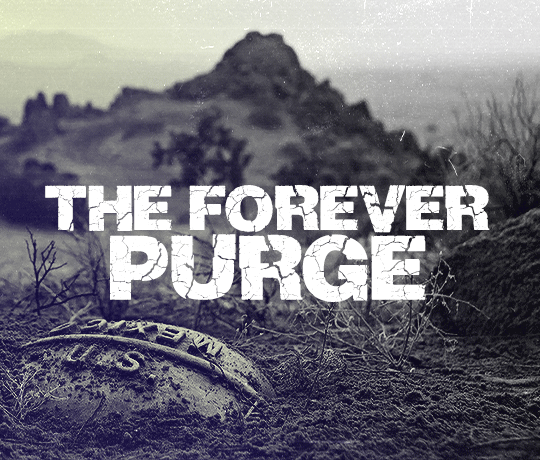

This is your emergency broadcast system announcing the commencement of the Annual Purge sanctioned by the U.S. Government. Weapons of class 4 and lower have been authorized for use during the Purge. All other weapons are restricted. Government officials of ranking 10 have been granted immunity from the Purge and shall not be harmed. Commencing at the siren, any and all crime, including murder, will be legal for 12 continuous hours. Police, fire, and emergency medical services will be unavailable until tomorrow morning at 7 a.m. when The Purge concludes. Blessed be our New Founding Fathers and America, a nation reborn. May God be with you all.
TJ MIKELOGAN'S HALLOWEEN 2023 EVENT
Day 8, horror franchise: THE PURGE
#the purge#thepurgeedit#halloween2023#thepurgetvedit#usercoty#usertj#tuserjes#userbabysitter#junkfooddaily#horrorsource#dailyflicks#filmedit#horroredit#horror#filmgifs#*#in-universe chronological order#purge tv show you will always be famous
198 notes
·
View notes
Text
Okay Brits I need you to start paying attention.
We are likely in a General Election year.
We are going to be voting which political party we want to govern us the next five years. As of yet we don't have a date (the latest it could be held is January 2025, though it's probably going to be in 2024), but you need to start listening to what's going on so you can be ready and make an informed choice.
In the last General Election, the turnout was 67.3% across the UK. People often say they didn't vote because they didn't understand the politics or "they're all the same anyway."
When a General Election is called, Polling Day will be 25 days later. If you're working, busy, or just have life stuff happening, you may not have time to do the research you want. This is why it's important to start doing things now.
1. Are you Registered to Vote?
You can register to vote here.
You can check if you're registered by going here.
You must 18 or over on Polling Day to vote in a General Election.
You must also be one of the following:
A British, Irish, or qualifying Commonwealth citizen. (You can check here if you're a qualifying Commonwealth citizen)
Be resident at an address in the UK (or a British citizen living abroad who has been registered to vote in the UK in the last 15 years)
Not be legally excluded from voting
According to the website, while registering, "You’ll be asked for your National Insurance number (but you can still register if you do not have one). After you’ve registered, your name and address will appear on the electoral register."
There is also an option to register to vote anonymously "if you're concerned about your name and address appearing on the electoral register for safety reasons." The link to that page is here.
You can register to vote by post by going here and printing out the forms.
If you would like a step-by-step guide to registering to vote, here is a page that has a pdf doing just that. It is also available in Welsh.
2. Get a Photo ID
We now need to show a photo ID when turning up to the polls.
Here is a list of valid forms of photo ID.
Make sure you give yourself plenty of time to get a valid ID, otherwise you will be turned away from the polling station.
If you vote by proxy, you need to "take your own ID when you go to vote on someone else’s behalf. You do not need to take theirs."
According to the website, "The name on your ID must match your name on the electoral register. If it does not, you’ll need to:
register to vote again with your new details
take a document with you to vote that proves you’ve changed your name (for example, a marriage certificate)
Small differences do not matter. For example, if your ID says ‘Jim Smith’ instead of ‘James Smith’.
If you do not have a type of photo ID that allows you to vote, you can apply for a Voter Authority Certificate."
3. You need to apply to vote by post
You can apply here.
You need to be registered before applying.
To apply you need:
"The address where you are registered to vote
Your National Insurance number or other identity documents, e.g. a passport
the specific date of the election or referendum you want to make a postal vote, if you only want a one-off postal vote
You’ll also need to upload a photo of your handwritten signature in black ink on plain white paper.
If you cannot provide a signature or one that always looks the same, you may be able to apply for a postal vote signature waiver within the service.
You might be asked for extra documents to identify you."
The linked page has an option for downloading an application form to send in by post.
4. Start Researching!
Think back to the last few years.
What did you like, and who did them? What about the opposite?
Is there something local happening in your area, and who is pushing for/against it?
Look up the parties' social media - what do they promote, promise, and call out?
Here are some resources:
An overview of the political parties
BBC News page for current politics
How many MPs are in which parties
Information on General Elections/when ours will likely be held
The other key political events in 2024
General info around voting, elections, boundary changes, etc.
TL;DR
2024 Will likely be the year the UK votes for the next political party in charge.
You need to register to vote.
You need a photo ID to take with you.
You need to apply to vote by post.
The best time to start looking into the parties and what they do is now, so you can be informed later on.
The rest of the world is welcome to share this!
#politics#uk politics#british politics#general election#general election 2024#uk#britain#written in stone
93 notes
·
View notes
Text
Apparently transpeople will also die from the inaccurate recording of Sex within statistics
The collection of data on a person’s sex – that is, whether they are male or female – has become controversial in recent years, and a number of public bodies have moved away from collecting data on sex as a result. For example, Scotland’s chief statistician recently issued guidance stating that data on sex should only be collected in exceptional circumstances. This move has been greeted with alarm by quantitative social scientists who believe that data on sex is vitally important and that data on both gender identity and sex is needed.
The Office for National Statistics (ONS) was also embroiled in controversy when it proposed to guide respondents to the 2021 England and Wales census that they may answer the sex question in terms of their subjective gender identity, rather than their sex. This was despite the fact that the 2021 census also included a new separate question on gender identity. The ONS was forced to change its proposed guidance on the sex question by a judicial review and went on to advise that people should answer the first question to reflect their legal sex. The Scottish census authorities have been criticised for disregarding the implications of that judgment.
Statistics on employment, health, crime and education have all been affected by this trend.
The Government Equalities Office has issued guidance to employers who are legally bound to report on their gender pay gap to provide data on their employees’ gender identity, not their sex, and to exclude employees who “do not identify as ‘men’ or ‘women’” from the data. This makes it impossible to assess whether natal males who identify as trans or non-binary may have different labour-market experiences from natal females who identify as trans or non-binary. Yet non-binary or transgender identification may not protect females from discrimination, for example, on the basis of pregnancy or maternity or the perceived risk of becoming pregnant.
The NHS decides who to call for routine medical screenings based on the gender marker a person has recorded with their GP rather than their sex as recorded as birth. The NHS’s failure to record biological sex on patient records has led to trans patients not being called in for screening for conditions that may affect them due to their sex, such as ovarian cancer or prostate cancer. If trans patients are not screened for such conditions, the consequences are potentially fatal. The use of gender identity rather than sex has also led to confusion for some trans patients attempting to use sexual health services.
Freedom of information requests have revealed that multiple police forces in England now record crimes by male suspects as committed by women if the perpetrator requests to be recorded as such. Even small numbers of cases misclassified in this way can lead to substantial bias in crime statistics.
Differences between the sexes are an important factor for analysis in most, if not all, of the areas that social and health scientists address. Sex, alongside age, is a fundamental demographic variable, vital for projections regarding fertility and life expectancy. Sex has systematic effects on physical health and is also linked to mental health. And the importance of sex extends to all aspects of social life, including employment, education and crime.
We know that many differences between the sexes have changed dramatically over time – education and labour market participation are two examples. Without consistent data on sex, social scientists would not be able to track this change over time or to understand whether efforts to improve the representation of women and girls in domains where they are underrepresented have been effective.
We have been losing data on sex, as public sector bodies have switched to collecting data on gender identity instead. But the tide may have turned. The UK Statistics Authority has recently published guidance that recommends that “sex, age and ethnic group should be routinely collected and reported in all administrative data and in-service process data, including statistics collected within health and care settings and by police, courts and prisons”. It also says data producers should clearly distinguish between concepts such as sex, gender and gender identity.
Both people’s material circumstances and their identities are important to their lives. We know that sex matters, and we have much to learn about the ways in which gender identity matters, too. Rather than removing data on sex, we should collect data on both sex and gender identity, in order to develop a better understanding of the influence of both of these factors and the intersection between them.
Original article in The Conversation
Professor Alice Sullivan’s academic profile
UCL Social Research Institute
137 notes
·
View notes
Text
The IB affair (Swedish: IB-affären) was the exposure of illegal surveillance operations by the IB secret Swedish intelligence agency within the Swedish Armed Forces. The two main purposes of the agency were to handle liaison with foreign intelligence agencies and to gather information about communists and other individuals who were perceived to be a threat to the nation.[...]
The story was immediately picked up by many leading Swedish dailies.[3] Their revelations were that:
•There was a secret intelligence agency in Sweden called IB, without official status. Its director Birger Elmér was reporting directly to select key persons at cabinet level, most likely defence minister Sven Andersson and Prime Minister Olof Palme.
•The Riksdag was unaware of its activities.
People with far-left views had been monitored and registered.
•IB agents had infiltrated Swedish left-wing organisations and sometimes tried to induce them into criminal acts.
•There were Swedish spies operating abroad.
IB spies had broken into the Egyptian and Algerian embassies in Stockholm.
•The IB co-operated extensively with the Central Intelligence Agency and Shin Bet, in contrast to the official Swedish foreign policy of neutrality.[...]
In the following issues of Folket i Bild/Kulturfront the two uncovered further activities of IB and interviewed a man who had infiltrated the Swedish movement supporting the FNL, Vietnamese National Front for the Liberation of South Vietnam - at this time the FNL support network was a backbone of the radical opinion - and among other things, visited Palestinian guerilla camps in Jordan. The man worked for IB and had composed reports that, it was surmised, IB later passed on to the Israeli security services which resulted in the camps being bombed. [...]Swedish authorities claimed they were unable to locate him to stand trial. In 2009, he released an autobiography of his years in IB[...] He also confirmed that he had been transferred from IB to the Mossad, an Israeli intelligence agency, immediately prior to his exposure.[...]
The magazine had information from a previous employee of IB, Håkan Isacson, who claimed that IB had broken into the offices of two political organizations: the FNL Groups, a pro-North Vietnamese organization, and the Communist Party of Sweden, a Maoist political party. This concerned a Jordanian citizen and a stateless citizen. A wiretap was installed in the latter case. After this uncovering, the defense minister did admit that IB engaged in espionage outside of Sweden and infiltrated organizations within Sweden, including wiretaps.
Evidence was put forth in 1974 that IB had built up a large network of agents in Finland, which included the Finnish foreign minister Väinö Leskinen. This network's main mission was to gather information regarding the Soviet Union.[...]
In November 1973, Prime Minister Olof Palme denied any link between IB and the Social Democrats. However, according to the memoir of ex-security service chief P.G. Vinge, Birger Elmér had regular contact with Palme and made his reports regularly to the Social Democratic Party secretary, Sven Andersson.[...]
Jan Guillou, Peter Bratt, Håkan Isacson and the photographer Ove Holmqvist were arrested 22 October 1973[2] by the Swedish Security Service on suspicion of espionage. On 4 January 1974 each was sentenced to 1 year in prison. Bratt and Guillou were both convicted of espionage; Isacson was convicted of espionage and accessory to espionage. After an appeal, Guillou's sentence was commuted to 10 months. The Swedish Supreme Court would not consider the case.[4][...]
In 2002 an extensive public report, named Rikets säkerhet och den personliga integriteten (Security of the Realm and personal integrity), was published on the operations of IB. This report clarified the details of the case, but it did not have any legal impact.
To date, no member of IB has ever been indicted, nor has any politician or government official, despite the revelation of widespread extra-constitutional and criminal activity.
86 notes
·
View notes
